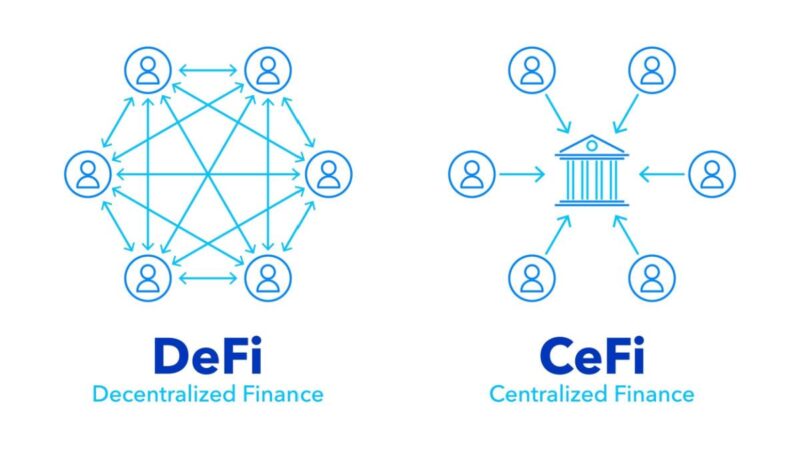Cryptocurrency exchanges are platforms where you can buy, sell, or exchange cryptocurrencies for other digital currency or traditional currency like US dollars or Euro. They come in two main types: centralized (CEX) and decentralized (DEX) exchanges. In this article, we’ll explore the main differences between the two to help you understand the crypto world better.
What is a Centralized Exchange (CEX)?
A centralized exchange is a platform managed by a company that facilitates the trade of cryptocurrencies. These exchanges act as intermediaries, maintaining the order books, setting the rules, and ensuring that trades occur smoothly.
What is a Decentralized Exchange (DEX)?
A decentralized exchange, on the other hand, operates without a central authority. These platforms use blockchain technology and smart contracts to facilitate peer-to-peer trading, ensuring users remain in control of their funds at all times.
Key Differences between Centralized and Decentralized Cryptocurrency Exchanges
- Management and Control: CEXs are managed by companies that control the platform and the trading process, while DEXs use decentralized networks and algorithms, eliminating the need for intermediaries.
- Security: CEXs are susceptible to hacks and theft as funds are stored in company-controlled wallets. DEXs are more secure because users maintain control of their funds, and transactions occur directly between users.
- Privacy: CEXs typically require users to complete Know Your Customer (KYC) and Anti-Money Laundering (AML) verification processes, compromising privacy. DEXs generally require no personal information, preserving users’ anonymity.
- Liquidity: CEXs usually offer higher liquidity due to their large user base and trading volumes. DEXs often experience lower liquidity because of lower trading volumes and market fragmentation.
- Trading Speed: As centralized platforms, CEXs can process transactions more quickly than DEXs, which may suffer from slower confirmation times due to reliance on the blockchain network.
- Listing Fees: CEXs often charge high listing fees for new crypto projects, which may hinder the entrance of promising start-ups. DEXs have lower barriers to entry, allowing easier access for new tokens and projects.
- Regulations: CEXs operate under the guidance of financial authorities, making them more likely to comply with regulations and tax requirements. DEXs generally function in a regulatory grey area, attracting users who value decentralization and privacy.
Conclusion
Both centralized and decentralized cryptocurrency exchanges play crucial roles in the crypto ecosystem. Choosing between the two will depend on your preferences for security, privacy, trading speed, ease of use, and regulatory compliance. As crypto adoption continues to grow in 2024, understanding the differences between these exchanges is essential for navigating the industry with confidence.

